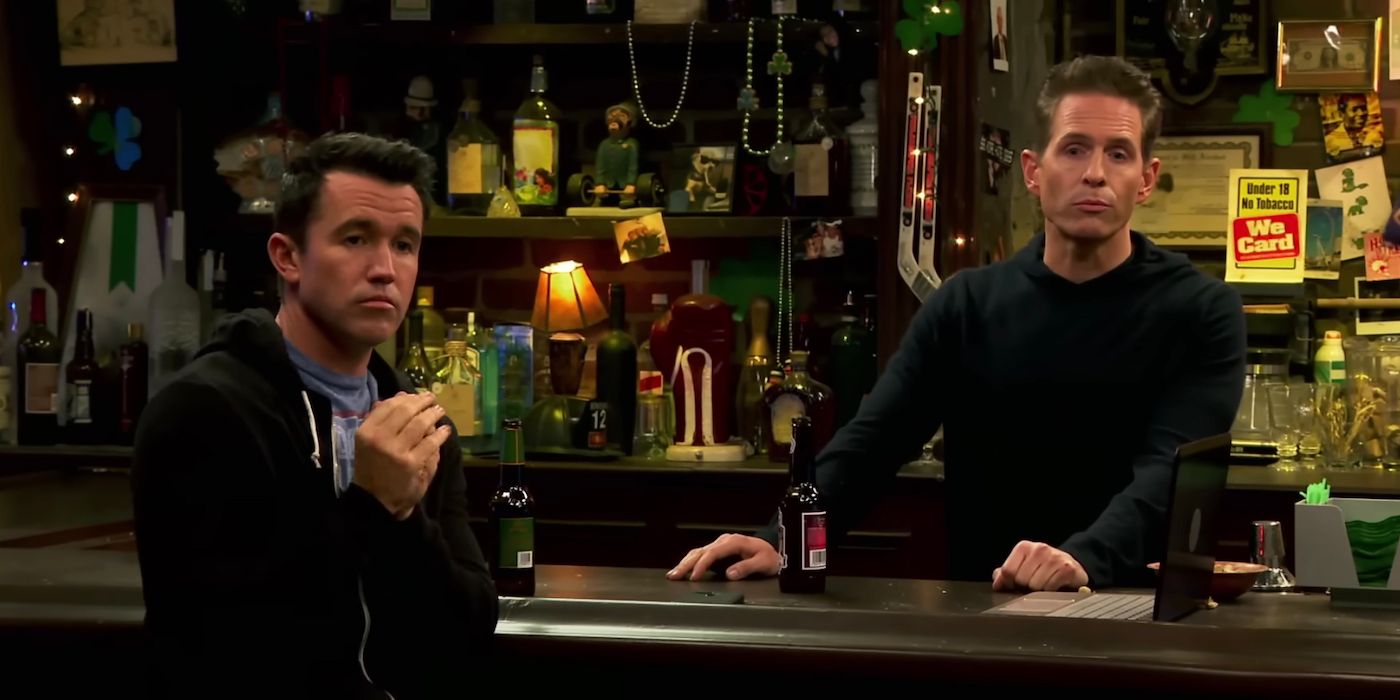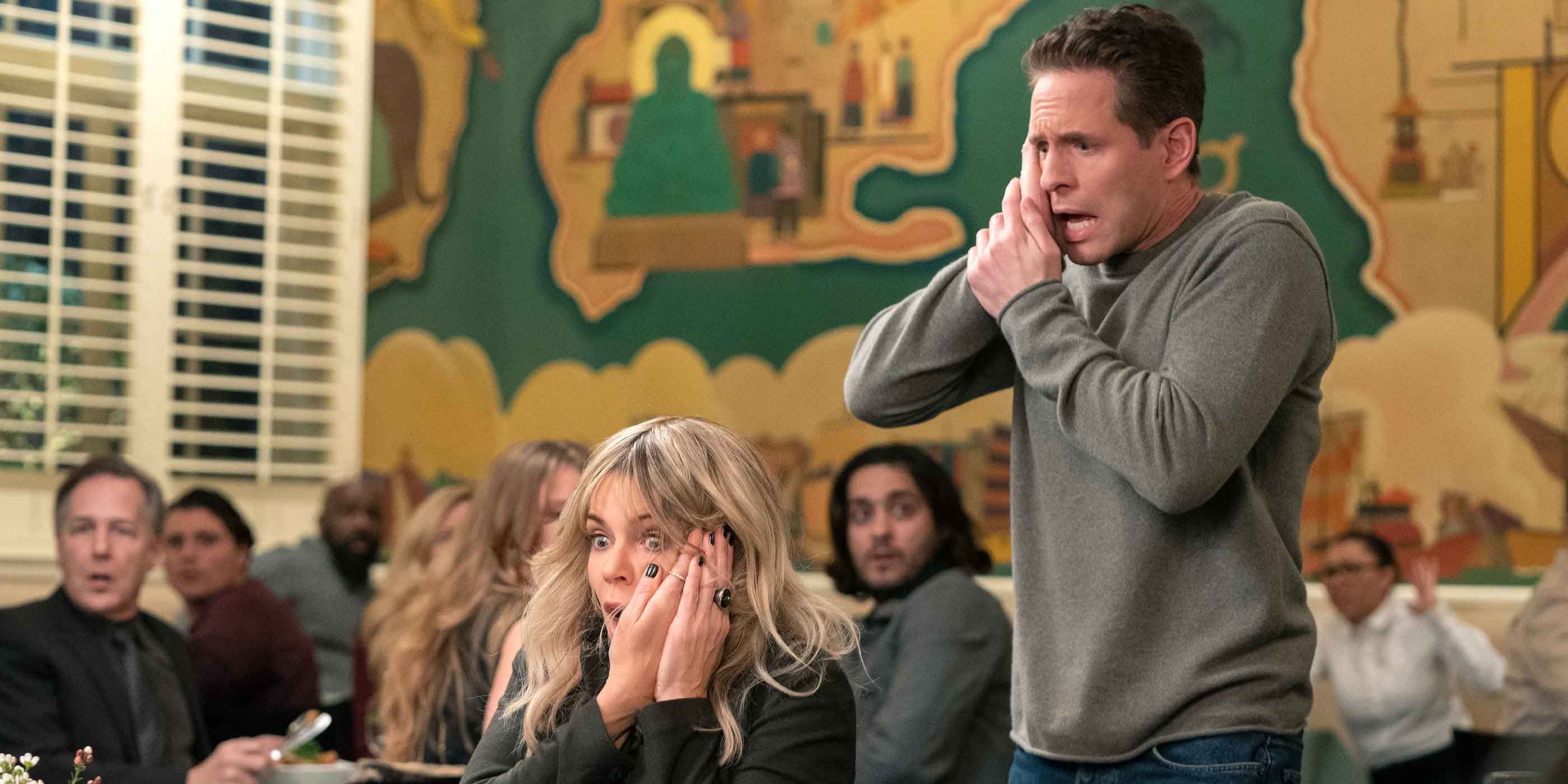Over the course of now sixteen seasons and eighteen years, It’s Always Sunny in Philadelphia has become the longest-running live-action American comedy series in history. What began as a scrappy series on the verge of getting cancelled in its first season—on the FX network that no one cared about no less—has become a modern-day classic featuring five of the most unhinged narcissists ever put on screen. But even more shocking than It’s Always Sunny’s rise into record-breaking history is that the series has not only maintained a reputation as one of the funniest shows on television, but has continually gotten better. It’s Always Sunny also manages to surprise, not just on an absurdity level, but on an emotional level, as in recent years, we saw Mac (Rob McElhenney) accept who he is in “Mac Finds His Pride,” and last season, Charlie (Charlie Day) had to reconcile which was more important to him: his real father, or his father figure, Frank (Danny DeVito).
In the lead-up to Season 16, we’ve seen as the cast has gone off on their own projects, whether it’s Glenn Howerton and Kaitlin Olsen starring in BlackBerry and Champions, respectively, Day making his directorial debut with Fool’s Paradise, and McElhenney purchasing a soccer team with Ryan Reynolds and making a TV show about it. And yet, when The Gang comes back together at Paddy’s Pub, it’s like nothing has changed, as if once again, we’re back home, watching this insane quintet who embraces every invasive thought that rational people would simply ignore. After sixteen seasons, it’s truly an impressive feat that somehow It’s Always Sunny in Philadelphia can still shock, surprise, and most importantly, make us laugh as hard as it ever has.
In the first six episodes, the sixteenth season goes in the wild directions that we’d expect from this group. The Gang explores everything from inflation and their legacies to trying to get Bryan Cranston and Aaron Paul to buy their own alcohol brand. Even though we know these scenarios are likely going to end in blood and vomit (or both), or The Gang ending up right where they were while hurting those around them, even after almost two decades, there’s still a joy to watching them be the absolute worst people imaginable.
Coming after Charlie’s search for his father in Season 15, this season also brings family into the equation much more often. For example, the first episode, “The Gang Inflates,” has Dennis and Dee attempting to get back into Frank’s will, while Charlie’s Mom (Lynne Marie Stewart), Mac’s Mom (Sandy Martin), and Uncle Jack (Andrew Friedman) are around for more of this season than expected—which makes for a nice addition. For example, in the second episode, “Frank Shoots Every Member of the Gang,” Charlie, Mac, and their mothers go to meet Mac’s uncle and Charlie’s sisters in order to gain pieces of their family’s legacies (for the Kelly family, that means a giant jar of teeth full from past generations ever since their family arrived on the Nina, Pinta, and the Santa Margarita). While it’s always great spending time with these five, it’s nice that this season tries to expand a bit more into the supporting characters that are equally fun to explore.
For a while, It’s Always Sunny in Philadelphia excelled at exploring real-world issues through the lens of whatever the hell these maniacs think, and maybe the biggest surprise in Season 16—especially with episodes with names like ‘Frank vs. Russia,” and “Frank Shoots Every Member of the Gang”—is that the show doesn’t seem to be attempting any larger commentary. In “Frank Shoots…,” Dennis and Dee attempt to get Frank to give them his gun, and while “The Gang Inflates” does do an admirable job of explaining inflation in a way that even Charlie can understand it, there’s no real larger message with this concept. This certainly isn’t a choice that damns the new season in any way, but considering the topics this season decides to explore, it is a bit unusual that the show doesn’t attempt a grander point with these issues.
Season 16 Often Feels Like 'It's Always Sunny' At Its Best
But especially in the show’s fifth and sixth episodes, “Celebrity Booze: The Ultimate Cash Grab,” and “Risk E. Rat’s Pizza & Amusement Center,” Season 16 feels very much like old school It’s Always Sunny in Philadelphia at its finest. “Celebrity Booze” (the only episode of these first six written by McElhenney, Day, and Howerton) brings Cranston and Paul into the mix, playing with their own personas, and with The Gang hilariously thinking Paul is Malcolm of Malcolm in the Middle.
Probably the closest the show comes to commentary in this season so far is “Risk E. Rat’s Pizza,” in which The Gang goes to a Chuck E. Cheese-like restaurant, where they realize times have changed, and they rail about how things used to be better. Dee argues that Frank’s experience with the restaurant, with its racist jokes, was a different time, while Dee and the rest of The Gang miss when the restaurant used to have a bar, sell lifelike guns, and had animatronics that looked like birds realistic human breasts. That sort of toxic nostalgia and the breaking down of how the “things used to be better in my day” mentality is a great example of It’s Always Sunny commenting on our current society in a fun way that also manages to be prescient.
It’s truly remarkable that after sixteen seasons, not only does It’s Always Sunny in Philadelphia still remain hilarious and weird, but that it never feels like it’s just going through the motions despite all this time. It’s Always Sunny in Philadelphia remains one of the funniest, strangest, and most unpredictable shows, even after eighteen years, and it’s this type of longevity and brilliance that will make it go down as one of the all-time great sitcoms.
Rating: B+
It’s Always Sunny in Philadelphia returns on Wednesday, June 7 with its first two episodes on FXX, with the episodes streaming the next day on Hulu. A new episode will air every Wednesday on FXX, followed by its release on Hulu the next day.


Comments
Post a Comment